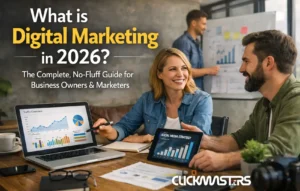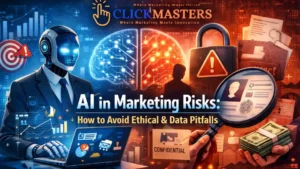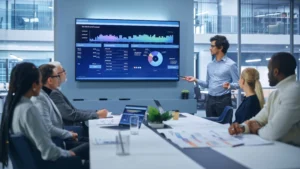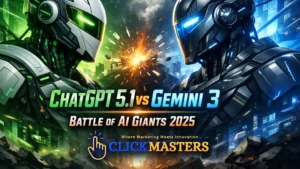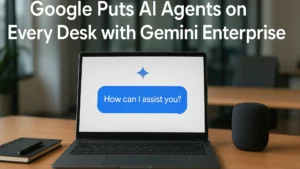As artificial intelligence (AI) continues to reshape industries across the world, one of the most frequently asked questions is:
Will AI replace marketers in 2025?
With the rise of AI tools like ChatGPT, Google Gemini, Jasper, and other automation platforms, many professionals fear being left behind. But is that fear justified, or is it a misunderstanding of what AI is truly capable of?
In this blog, we’ll separate myth from reality, explore how AI is transforming digital marketing.
The Current State of AI in Digital Marketing-2025 Statistics
The coordination of AI in digital marketing has changed instantly. According to McKinsey’s latest survey, 78 percent of organizations use AI in at least one business function, up from 72 percent in early 2024 and 55 percent a year earlier. In the marketing sector specifically, 88% of marketers use AI in their day-to-day roles, indicating unprecedented adoption rates. (SurveyMonkey).
The change is proof that the tool has capabilities as well. Research shows that 41.65% of marketers report that most or all of their existing tools have now added AI features and functionality in the last year. Only 6.36% of marketers reported zero AI upgrades to the software they use for marketing.
Myth vs. Reality: Will AI Replace the Marketer?
The Reality Check: Job Displacement vs. Job Enhancement
While fears of AI replacing digital marketers are widespread, current data paints a different picture. Only 14% of workers have experienced job displacement due to AI (McKinsey and Company), suggesting that the present impact is somewhat less than the estimates. This statistic is particularly significant when considering that 30% of workers worldwide fear that AI might replace their jobs within the next three years.
The World Economic Forum’s analysis provides additional context: while 85 million jobs may be displaced by AI and automation by 2025, 97 million new roles may emerge, creating a net positive of 12 million jobs globally. This suggests transformation rather than elimination of employment opportunities.
The Human Element Remains Irreplaceable
Recent data suggests that the concern about AI tools replacing human content creators is unlikely to materialize. The reason lies in the fundamental nature of digital marketing, which requires human creativity, strategic thinking, and emotional intelligence that AI cannot replicate.
Industry experts emphasize that 2025 will be a year of increased AI, but it has never been more important to ensure that marketing doesn’t lose its human touch. There is a balance between automation and human creativity.
How AI is Transforming Digital Marketing Roles

Content Creation and Personalization
Generative AI is set to transform content creation in marketing by 2025, giving faster, cheaper, and with ga reater brand voice. Tools like GPT-4 and Synthesia can already write in your brand voice, adapt content to different channels, and scale production effortlessly.
However, this doesn’t mean human content creators are not good. Instead, their roles are evolving from content production to content strategy, quality control, and creative direction. AI handles the heavy lifting of content generation, while humans focus on strategic positioning and creative vision. 73% of marketers use AI tools like ChatGPT but still rely on human editing before publishing. (HubSpot State of Marketing 2025)
Data Analysis and Customer Insights
AI excels at processing vast amounts of data to identify patterns and trends that would be impossible for humans to detect manually. Digital marketers are increasingly using AI-powered analytics tools to gain deeper customer insights, predict behavior, and optimize campaigns in real-time.
Automation of Routine Tasks
The most significant impact of AI on digital marketing roles is the automation of repetitive, time-consuming tasks. This includes:
- Ad bidding and optimization: AI algorithms automatically adjust bids based on performance data
- Email marketing automation: Personalized email sequences triggered by user behavior
- Social media scheduling: AI-powered tools that determine optimal posting times
- Customer segmentation: Automated grouping of customers based on behavior and preferences
The Role of the Human Marketer in the AI Era
Despite AI’s strengths, human marketers play a critical role in:
- Brand positioning
- Creative storytelling
- Campaign strategy
- Emotional connection
- Relationship building
- Ethical marketing decisions
AI is a powerful assistant, but not a replacement 85% of CMOs in 2025 agree that AI augments marketing teams, it doesn’t eliminate them.
(Gartner CMO Strategic Report 2025)
Will AI Replace Digital Marketers in 2025?
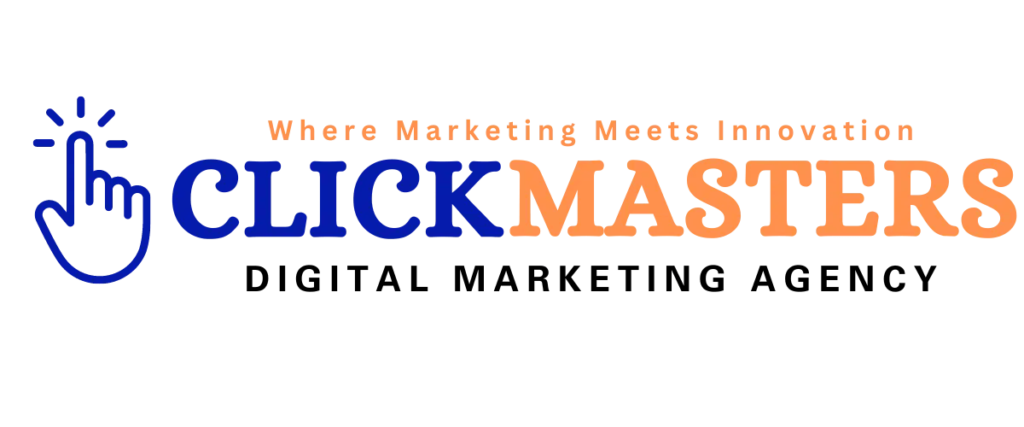
🚀 Discover how AI is transforming digital marketing and how you can stay ahead!
✅ Explore expert strategies to optimize your digital marketing efforts in 2025.
📈 Start future-proofing your business now! Learn More Today!
The Skills Gap: What Digital Marketers Need to Adapt
Technical Proficiency with AI Tools
Modern digital marketers must develop proficiency with AI-powered marketing tools. This includes understanding how to:
- Configure and optimize AI-driven campaigns
- Interpret AI-generated insights and recommendations
- Integrate AI tools into existing marketing workflows
- Troubleshoot AI system issues
Strategic Thinking and Creative Problem-Solving
As AI handles routine tasks, human marketers must focus on higher-level strategic thinking. This involves:
- Developing comprehensive marketing strategies that leverage AI capabilities
- Creating innovative campaigns that stand out in an AI-saturated market
- Solving complex marketing challenges that require human intuition and creativity
- Building authentic brand narratives that resonate with human emotions
Data Interpretation and Critical Analysis
While AI can process data, human marketers must interpret results and make strategic decisions based on AI-generated insights. This requires:
- Understanding statistical significance and data reliability
- Identifying actionable insights from AI-generated reports
- Making strategic decisions based on AI recommendations
- Maintaining ethical standards in AI-driven marketing practices
Industry-Specific Impact Analysis
E-commerce and Retail Marketing
The e-commerce sector has seen significant AI adoption, with personalization engines and recommendation systems becoming standard. However, human marketers remain essential for:
- Developing brand positioning strategies
- Creating compelling product narratives
- Managing customer relationships
- Ensuring ethical marketing practices
B2B Marketing
In B2B marketing, AI is revolutionizing lead generation and nurturing processes. Yet human expertise remains crucial for:
- Understanding complex business relationships
- Creating thought leadership content
- Building trust with enterprise clients
- Navigating intricate sales cycles
Social Media Marketing
AI tools can schedule posts and analyze engagement metrics, but human marketers are irreplaceable for:
- Building authentic brand communities
- Managing crisis communications
- Creating viral content that resonates with audiences
- Understanding cultural nuances and trends
The Future Landscape: Predictions for 2025-2030
Hybrid Roles and Collaboration
The future of digital marketing lies in human-AI collaboration rather than replacement. Marketers who are embracing AI in their daily processes will begin to replace those who don’t, suggesting that adaptation rather than resistance is key to professional survival.
Emerging Job Categories
New roles are emerging that combine AI expertise with marketing knowledge:
- AI Marketing Strategists: Professionals who design AI-driven marketing campaigns
- Marketing Automation Specialists: Experts who configure and optimize AI-powered marketing systems
- AI Ethics Managers: Professionals who ensure responsible AI use in marketing
- Human-AI Collaboration Specialists: Experts who optimize human-AI team performance
Skills Premium
Digital marketers who successfully integrate AI into their skill sets will command premium salaries and have better career prospects. The key is positioning AI as a tool that enhances human capabilities rather than threatens job security.
Challenges and Concerns
Workforce Displacement Concerns
Workforce displacement remains a concern for 35 percent of respondents in recent surveys about AI implementation. However, 40% of employers expect to reduce their workforce where AI can automate tasks, primarily affecting entry-level positions rather than experienced professionals.
Ethical Considerations
As AI becomes more prevalent in marketing, ethical concerns arise regarding:
- Privacy and data protection
- Algorithmic bias in targeting and personalization
- Transparency in AI-driven decision making
- Maintaining authentic human connections with customers
Quality Control and Brand Safety
While AI can generate content at scale, maintaining brand voice consistency and ensuring content quality requires human oversight. Marketers must develop quality assurance processes for AI-generated content.
SEO Perspective: How AI & Marketers Work Together
In Search Engine Optimization (SEO), AI tools like Surfer, Clearscope, and MarketMuse help with: Keyword research, Topic analysis, Content gap analysis, SERP competitor audits
But human SEO experts are still needed to:
Make strategic content decisions
Ensure E-E-A-T compliance (Experience, Expertise, Authoritativeness, Trustworthiness)
Align SEO with brand goals. AI SEO tools can increase traffic by 30-50%, but only when used with human expertise. (Moz SEO Report 2024)
Final Verdict: Myth Busted
So, will AI replace the marketer?
No. But it will replace marketers who refuse to evolve.
AI is not a threat, it’s a tool. In 2025 and beyond, marketers who learn to leverage AI will thrive, while those who resist change may fall behind.
How ClickMasters Digital Marketing Agency Helps You Thrive with AI
At ClickMasters Digital Marketing Agency, we empower businesses to embrace AI without losing the human touch. From AI-powered SEO strategies to content automation and performance analytics, we blend smart technology with expert marketing to deliver results.
Partner with ClickMasters Digital Marketing Agency and turn AI from a threat into a growth opportunity.
Frequently Asked Questions (FAQs)
Q1: Will AI completely replace digital marketers by 2025?
A: No, AI will not completely replace digital marketers. While AI is automating certain tasks, it’s creating new opportunities and roles that require human creativity, strategic thinking, and emotional intelligence. Current data shows only 14% of workers have experienced job displacement due to AI, far less than predicted.
Q2: What digital marketing jobs are most at risk from AI?
A: Entry-level positions involving routine tasks like basic data entry, simple content creation, and manual campaign optimization are most at risk. However, even these roles are evolving rather than disappearing entirely, with workers shifting to more strategic and creative responsibilities.
Q3: How can digital marketers prepare for AI integration?
A: Digital marketers should focus on developing AI literacy, strengthening human-centric skills like creativity and strategic thinking, and learning to work effectively with AI tools. Continuous learning and adaptation are essential for staying relevant in the evolving landscape.
Q4: Are there new job opportunities created by AI in marketing?
A: Yes, AI is creating new roles such as AI Marketing Strategists, Marketing Automation Specialists, and AI Ethics Managers. These positions require both marketing expertise and AI knowledge, often commanding premium salaries.
Q5: What skills will be most valuable for digital marketers in the AI era?
A: The most valuable skills include strategic thinking, creative problem-solving, data interpretation, emotional intelligence, and AI tool proficiency. Marketers who can effectively combine human insight with AI capabilities will be most successful.
Q6: How is AI changing content marketing specifically?
A: AI is automating content generation and personalization, allowing marketers to create more content faster and at scale. However, human oversight is still essential for strategy, quality control, brand voice consistency, and creative direction.
Q7: Will AI make marketing more or less personal?
A: AI has the potential to make marketing more personal through better data analysis and personalization capabilities. However, maintaining authentic human connections and understanding cultural nuances requires human insight and emotional intelligence.
Q8: What are the biggest challenges of AI integration in marketing?
A: Major challenges include maintaining quality control, ensuring ethical AI use, managing workforce transitions, and balancing automation with human creativity. Organizations must also address concerns about data privacy and algorithmic bias.



